In this newsletter: The erotic transference | Humanity’s AI challenge | The house of Emma and C.G. Jung | Answer to Job | Sabina Spielrein’s destiny | Dune | Individuation of Analytical Psychology (interview with Mark Saban) | The Decline of Sexuality (interview with Luigi Zoja) | Paranoia or Lucid Madness
Email us to subscribe or unsubscribe.
Dear subscriber,
As the light returns after the winter solstice, we are reminded that 150 years ago, in January 1875, Emilie Preiswerk carried within her the child who would grow to become a major figure in psychology: Carl Gustav Jung.
In this newsletter, we explore a range of thought-provoking articles from 2024, feature two interviews with leading Jungian analysts, and present three noteworthy Jungian books.
As we step into the new year, may we all continue our journey of individuation, embracing both the light and shadow that guide us toward a deeper understanding of the Self.
Articles
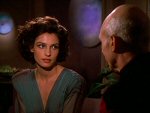 Holding the tension of the erotic transference: embodying Captain Picard in Star Trek’s “The Perfect Mate”
Holding the tension of the erotic transference: embodying Captain Picard in Star Trek’s “The Perfect Mate”
This article explores how a therapist can accompany the type of patient whose healing and transformation depend on being given a second chance to experience a healthy parental first love through the myth of Star Trek.
Peggy Vermeesch, PhD
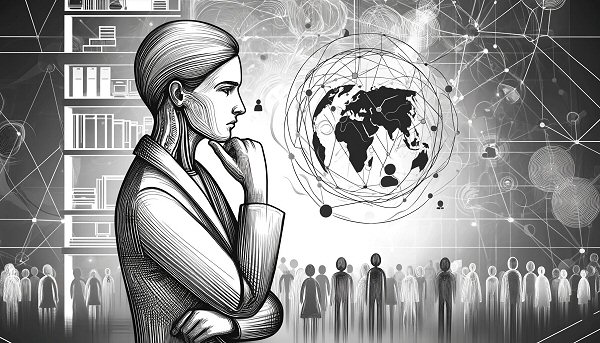 Humanity’s challenge in the face of Artificial Intelligence
Humanity’s challenge in the face of Artificial Intelligence
Advances in AI are making headlines. They offer promising prospects but also pose real threats. This article discusses several of these aspects and emphasizes the need to find a balance in response to these developments, starting with a return to self.
Jean-Pierre Robert
 Visit of the house of Emma and C.G. Jung
Visit of the house of Emma and C.G. Jung
Reflections on the home of Emma and Carl Gustav Jung highlight the alchemical symbolism in the objects of their shared lives, shedding light on their dynamic partnership. The house also evokes Jung’s Swiss heritage, inspiring a creative engagement with the past and a deeper connection to cultural grounding.
Rachel Huber & Bernard Hort
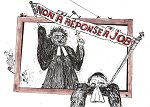 Answer to Job: Jung and his critics
Answer to Job: Jung and his critics
This article explores Jung’s 1951-1954 correspondence with theologians such as Victor White and Dorothee Hoch in order to delve into the contentious reception of « Answer to Job ». This analysis highlights the key arguments and insights from these letters, providing a deeper understanding of the criticisms Jung faced.
Ariane Callot, Doctor of philosophy
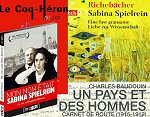 Sabina Spielrein’s life and destiny
Sabina Spielrein’s life and destiny
This article draws on Jungian typology to offer a fresh perspective on Sabina Spielrein’s complex journey. Tragically, the destructive forces that Spielrein insightfully described in 1912 and relentlessly opposed throughout her life would ultimately prevail.
Jean-Pierre Robert
 Dune: Was Frank Herbert inspired by C.G. Jung?
Dune: Was Frank Herbert inspired by C.G. Jung?
The release of the 2021 and 2024 Dune films reignited interest in Frank Herbert’s epic saga. This article examines how Jung’s theories—particularly his concepts of the unconscious—are reflected in Herbert’s work, with a focus on how some of Jung’s boldest ideas emerge in Whipping Star.
Ariane Callot, Doctor of philosophy
Interviews
 Individuation of Analytical Psychology: An interview with Mark Saban
Individuation of Analytical Psychology: An interview with Mark Saban
Mark Saban, author of Two Souls Alas: Jung’s Two Personalities and the Making of Analytical Psychology discusses the book’s core premise, its clinical implications, and his motivations for writing it. He argues that for the Jungian world to individuate, the personal and the archetypal must meet and be brought into tension with one another.
Interview by Peggy Vermeesch, PhD
 The Decline of Sexuality: An interview with Luigi Zoja
The Decline of Sexuality: An interview with Luigi Zoja
Luigi Zoja reflects on the ongoing decline of sexuality, shedding light on a significant issue that has long been overlooked. He examines the complexities and paradoxes facing contemporary generations as they navigate this profound transformation.
Interview by Claire Droin
Top pick
 Paranoia or Lucid Madness
Paranoia or Lucid Madness
In his book Paranoia: The Madness That Makes History, Luigi Zoja offers a multidimensional analysis of paranoia, illuminating historical events through a psychological lens. This essential read provides crucial insights into the dangers of this « lucid madness » and its implications for our contemporary world.
Top Pick by Claire Droin
Book presentations
 Two Souls Alas
Two Souls Alas
Mark Saban delves into Carl Jung’s childhood experience in « Two Souls Alas: Jung’s Two Personalities and the Making of Analytical Psychology ». This is the first book to suggest that Jung’s experience of the difficult dynamic between these two personalities not only informs basic principles behind the development of Jung’s psychological model but underscores the theory and practice of Analytical Psychology as a whole.
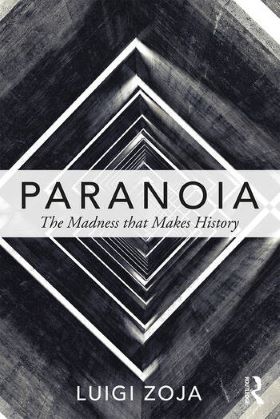 Paranoia: The Madness That Makes History
Paranoia: The Madness That Makes History
Luigi Zoja presents an insightful analysis of the use and misuse of paranoia throughout history and in contemporary society. Zoja combines history with depth psychology, contemporary politics and tragic literature, resulting in a clear and balanced analysis presented with rare clarity. The devastating impact of paranoia on societies is explored in detail.
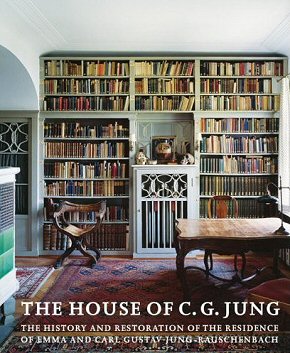 The House of C.G. Jung
The House of C.G. Jung
The history and restoration of the residence of Emma and Carl Gustav Jung-Rauschenbach. Featuring nearly 160 photographs and plans, the book takes readers through the various stages of the project: the original designs, the construction process, and the different adaptation and renovation works, with the most recent updates dating from the 2000s.
« And now let us welcome the new year, full of things that have never been. » Rainer Maria Rilke, Letter to a Young Poet
Jungian Psychology Space
Feel free to share this newsletter with your friends and family. You’re welcome to unsubscribe or re-subscribe at any time.
Email us to subscribe or unsubscribe.
